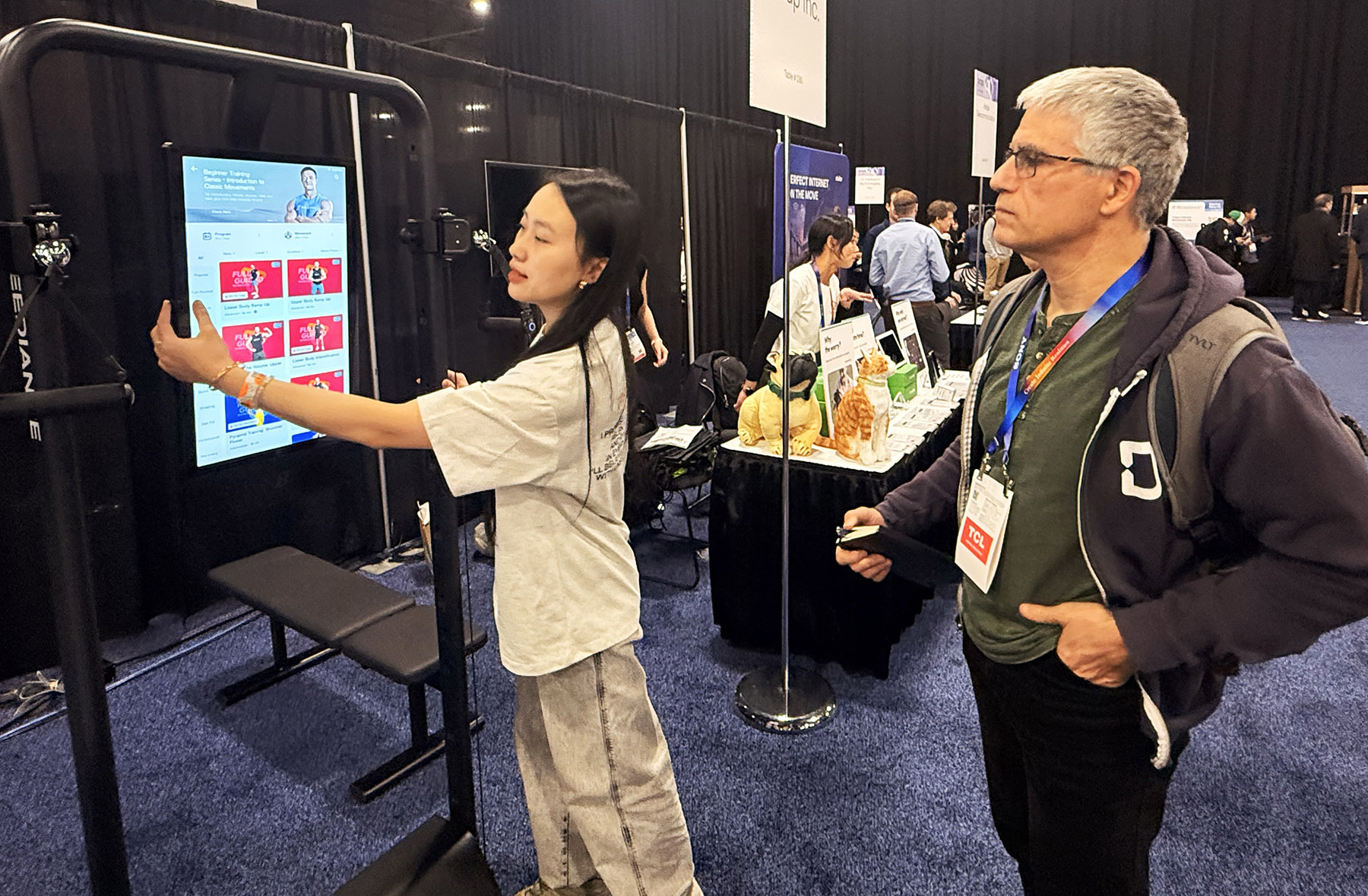
Chinese health and wellness startups have showcased innovative products ranging from AI-enabled smart rings to innovative hearing aids at CES in Las Vegas. Leveraging their technologies and competitive pricing, they are eager to establish a strong presence in the US healthcare technology sector.
Elehear, a Shenzhen-based smart-hearing aid company, exemplifies the trend with remarkable market performance. Jeffery Teng, the company’s marketing manager, said sales in the final two months of 2024 surpassed the previous 12 months’ figures.
The company strategically positioned itself to target the US market from its inception, recognizing the strong demand and health awareness among American consumers.
“While prescription hearing aids in the US typically cost between $3,000 and $4,000, our over-the-counter solution is priced at just $399 per unit, offering a compelling value proposition,” Teng said.
Elehear’s device, designed for people with mild to moderate hearing loss, combines advanced hearing technology with artificial intelligence capabilities to enhance speech clarity in noisy environments. It is also capable of seamlessly switching between hearing aid and Bluetooth headphone functionalities.
Teng attributed the competitive pricing to what he called “Shenzhen speed” — the rapid pace of technological iteration in the Chinese tech hub. He said the company maintains complete control over its product development cycle, with in-house technology development and domestic manufacturing eliminating the need for outsourcing.
That approach enables the company to reduce the design-to-production timeline to less than a year, while maintaining frequent software updates, sometimes every week, Teng said.
The success of such startups reflects the growing strength of China’s health and wellness sector. The robust domestic market has provided a strong foundation for overseas expansion, while Chinese companies’ expertise in AI and other cutting-edge technologies enables them to develop innovative wellness solutions at competitive prices.
READ MORE: Chinese brands fuel AI drive at major tech event
That competitive advantage is particularly relevant given the findings of a 2024 analysis by the digital health platform Calcium Health, which identified cost and financial constraints as major barriers to health tech adoption in the United States. The report highlighted opportunities for growth in areas leveraging AI and technologies that demonstrate clear outcomes and cost-effectiveness.
Speediance, a smart-home gym manufacturer based in Shenzhen, also has capitalized on those market conditions. After two years in the US market, the company has seen remarkable growth, with US sales accounting for 60 percent of total revenue. Marketing manager Frank Han shared that the company’s US sales grew from $19 million in its first year to $47.8 million in 2024.
Just like Elehear, Han attributed the company’s success to both competitive pricing and product innovation. Its smart-home gym-equipment features characteristics such as a portable design, eliminating the need for wall-mounting, along with subscription-free access and frequent system updates.
“Our strong internet-iteration capabilities enable rapid software updates incorporating AI features, such as AI coaches providing personalized training plans,” Han explained.
Speediance’s agile development approach allows it to quickly respond to customer feedback, with accessory updates completed within one to two months and major machine parts updated within six months, Han said.
Patrick Wayte, senior vice-president of the Center for Health Technology and Innovation at the American Heart Association, showed great interest in emerging technologies at the CES.
“There are some fascinating new technologies out on the floor. I’ve seen some of them myself,” he told China Daily. He expressed enthusiasm about welcoming more companies, including those from China, to join their innovators’ network.
ALSO READ: Qualcomm brings industry-leading AI innovations to CES 2025
Their philosophy is “to do well while doing good, exploring what’s possible”, Wayte explained. “We sometimes conduct studies and small clinical trials with these companies. They may utilize our digital science in areas like heart disease or stroke. Ultimately, our goal is to infuse these companies with a scientific approach,” he said.
“This isn’t about technology for technology’s sake — it’s about aligning science with technology, which is the foundation of our work with these companies,” he said. He also noted that their innovators’ network is expanding, and he would like to “spread the word” that his center has a place for Chinese technology companies.


